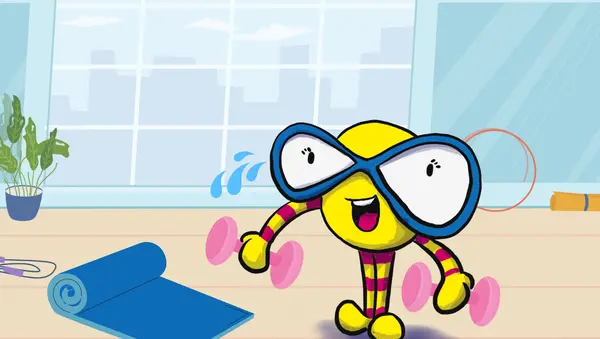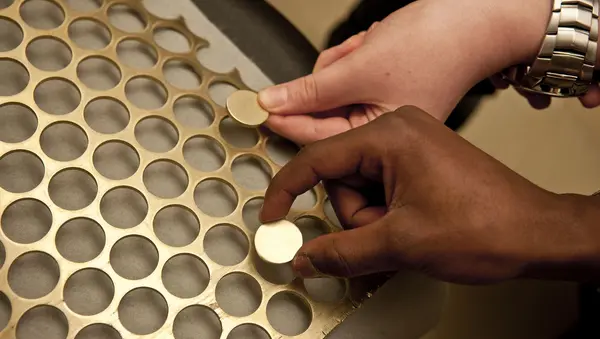Create a Geometric Cityscape

Paul Klee (1879 - 1940) was a Swiss-born German artist known for his highly individual style, that was influenced by art movements including expressionism, cubism and surrealism. He created over 10,000 paintings, drawings and etchings in his lifetime.
Klee frequently used 2D shapes in his artworks. One of his most well known abstract paintings from 1928 is called Castle and Sun, which is made up almost entirely out of squares, rectangles and triangles, with a large circle for the sun. The original painting is now in a private collection, but if you search for 'Paul Klee Castle and Sun' online you will find images of it.
Create your own geometric castle or cityscape, inspired by Paul Klee. You will need craft paper in a variety of colours, a large sheet of paper to arrange them on, scissors, and optionally some glue.
- Cut squares, rectangles and triangles out of the different colours of paper.
- Study Paul Klee's painting Castle and Sun (see above) for some inspiration.
- Arrange the cut out shapes on your large sheet of paper. You can either glue them down to create a permanent artwork, of keep them loose so you can rearrange them in to new cityscapes - like you very own Klee puzzle!
- Add a large coloured circle for the sun.
Maths skills involved: geometry, shapes, patterns, spatial reasoning
Latest News and Events

STEM Ambassadors in Scotland Week 2026
STEM Ambassador in Scotland (SAIS) Week is a celebration of all things STEM in Scotland through the experiences of our STEM Ambassadors.

Active Maths Challenge
Start the year with our mini Active Maths challenge and measure what progress you can make over four weeks.

Money Maths at Museum on the Mound
We are excited to offer Maths versions of our popular money-themed schools workshops. These are entirely free of charge. Best suited for P5-P7 pupils.